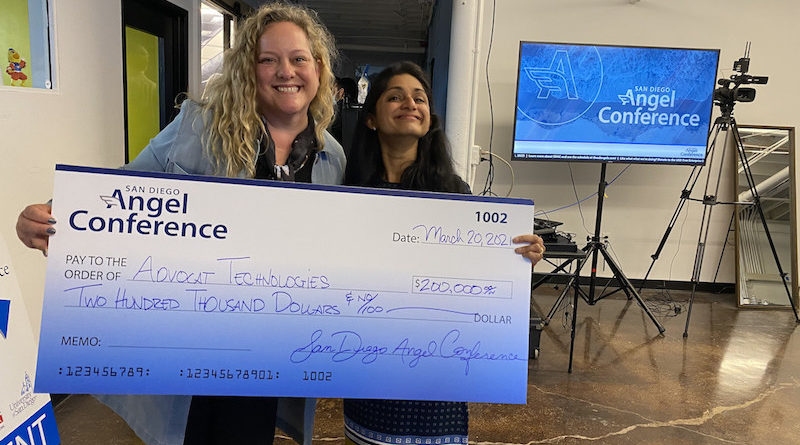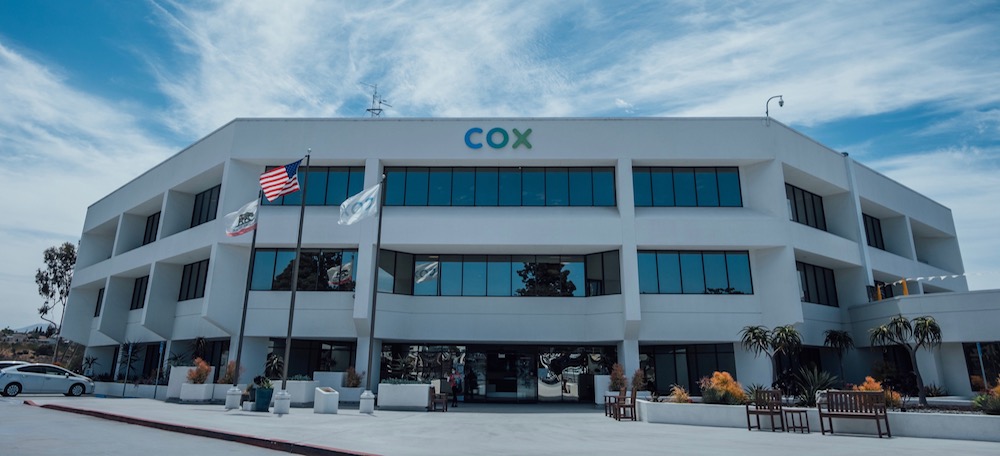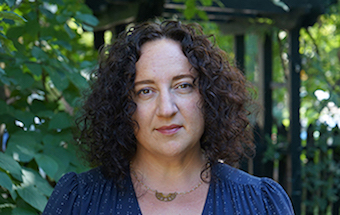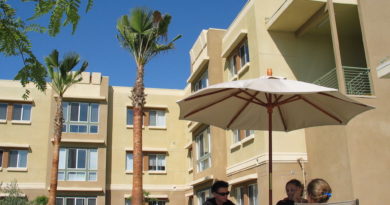Daily Business Report: Tuesday, July 27, 2021
San Diego Angel Conference activates
$1.7 million in funding of innovative startups
San Diego Angel Conference (SDAC), one of the largest angel investment networks in the country, has reached a significant milestone by collectively helping to raise $1.7 million for U.S. companies in the first six months of 2021.
Backed by the University of San Diego School of Business, the three-year-old organization focuses on boosting promising early-stage companies and helping accredited angel investors grow their portfolios in an approachable and inclusive environment.
“The best thing about SDAC is how openly, honestly and respectfully it operates, and without egos,” said SDAC member investor Silas Smith. “It is a safe space where questions can be asked without fear and knowledge is shared openly.”
Raised by SDAC’s network of 63 members, the $1.7 million includes $731,500 in checks written in association with SDAC’s annual conference which took place on March 20, 2021, as well as funds raised outside of the event over the first six months of the year. The $731,500 was awarded to startups including Advocat Technologies, ChargeNet, Fluid Power AI, Verity and Abterra Biosciences (formerly Digital Proteomics).
PHOTO: Dr. Silvia Mah, co-fund manager of San Diego Angel Conference, presents a $200,000 investment to Pradnya Desh, founder of Advocat Technologies, an artificial intelligence (AI) research and drafting solution for attorneys.
Singapore’s Prime US REIT acquires
Sorrento Towers for $146 million
Prime US REIT, a Singapore-based real estate investment trust, has acquired Sorrento Towers, a 296,327-square-foot Class A office complex in Sorrento Mesa, home to San Diego’s largest concentration of technology companies, for $146 million. The seller was Shorenstein Properties.
KBS serves as the U.S.-based asset manager for the portfolio, which included identifying and sourcing this asset on PRIME’s behalf. Sorrento Towers is a Class A property that consists of two seven-story office buildings situated atop a multi-level parking structure.
Built in 1990, Sorrento Towers is a LEED Gold-certified state-of-the-art life science/office asset positioned just south and east of the I-5/I-805 interchange.
Shorenstein acquired the property in 2018 and increased occupancy to 98 percebt. Over the last few years, the property underwent significant upgrades including state-of-the-art tenant improvements, updates to the common areas, a fully renovated open-air plaza, an upgraded fitness center, conference spaces, training center and collaborative meeting areas.
Cox Communications’ onsite solar and
battery energy system goes live in San Diego
The San Diego headquarters of Cox Communications is the first in the country for the national brand to install a solar photovoltaics and battery energy storage project. Built and serviced by PowerFlex, an EDF Renewables Company, the solar plus storage project will reducing utility costs and improving sustainability at the Federal Boulevard site.
The integrated onsite battery storage, carport and rooftop solar installation combined are projected to offset more than 374 tons of carbon each year.
Solar reduces utility costs by decreasing energy consumption while the battery storage shifts the solar generation into the evening on-peak period of expensive power. The storage system also will be used to mitigate spikes in energy usage, thus lowering utility demand charges.
Cubic Corporation wins U.S. Air Force
contract worth more than $10 million
Cubic Corporation announced its Cubic Mission and Performance Solutions business division was awarded the Small Form Factor Radio Phase 2 task order worth over $10 million under the U.S. Air Force contract. Cubic will develop two prototype variants,
enabling the exchange of multiple information types and formats including Full Motion Video.
“Cubic’s innovative and high-performance offering features a novel protected waveform that uniquely meets the Air Force’s needs for conducting air to ground communications without risking warfighter safety,” said Mike Knowles, president of Cubic Mission and Performance Solutions. “This opportunity expands on the successful work we have accomplished in previous developmental efforts for the Air Force.”
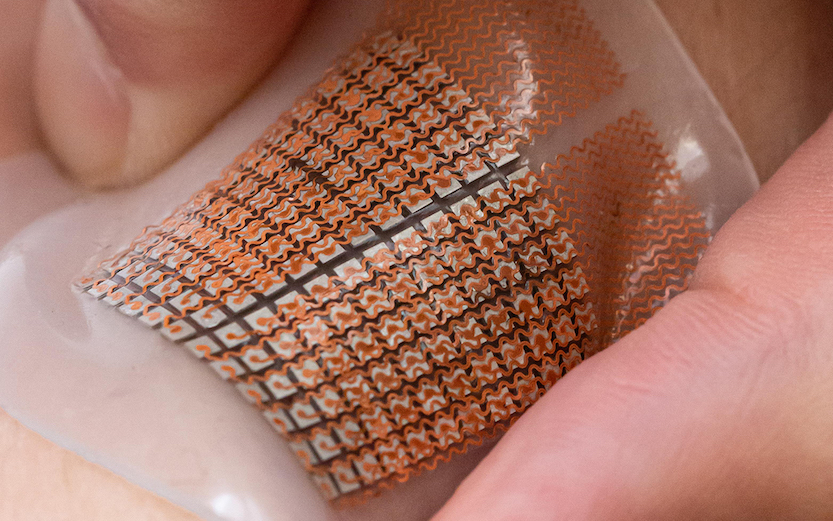
Soft skin patch could provide early
warning for strokes, heart attacks
Engineers at the University of California San Diego developed a soft and stretchy ultrasound patch that can be worn on the skin to monitor blood flow through major arteries and veins deep inside a person’s body.
Knowing how fast and how much blood flows through a patient’s blood vessels is important because it can help clinicians diagnose various cardiovascular conditions, including blood clots; heart valve problems; poor circulation in the limbs; or blockages in the arteries that could lead to strokes or heart attacks.
The new ultrasound patch developed at UC San Diego can continuously monitor blood flow—as well as blood pressure and heart function—in real time. Wearing such a device could make it easier to identify cardiovascular problems early on.
A team led by Sheng Xu, a professor of nanoengineering at the UC San Diego Jacobs School of Engineering, reported the patch in a paper published July 16 in Nature Biomedical Engineering.
Improving air quality reduces dementia
risk, multiple studies suggest
Improving air quality may improve cognitive function and reduce dementia risk, according to several studies reported Monday at the Alzheimer’s Association International Conference in Denver and virtually.
Previous reports have linked long-term air pollution exposure with accumulation of Alzheimer’s disease-related brain plaques, but this is the first accumulated evidence that reducing pollution, especially fine particulates in the air and pollutants from the burning of fuel, is associated with lower risk of all-cause dementia and Alzheimer’s disease.
Both increasing levels of air pollution and increasing cases of dementia are worldwide public health crises. While research has linked air quality and cognition previously, these new data explore how air pollutants might impact dementia and what reducing them might mean for long-term brain health.
Rebecca Bartel named Fred J. Hansen Chair
of Peace Studies at College of Arts and Letters
Rebecca Bartel, associate professor in San Diego State University’s Department for the Study of Religion, has been named Fred J. Hansen Chair of Peace Studies at the College of Arts and Letters.
The Hansen Chair is awarded to outstanding scholars whose research and teaching focus on peace and nonviolence.
Bartel, associate director for the Center for Latin American Studies, has centered her research and work on themes of social justice, political economies of war, and efforts at peacebuilding in Latin America and the U.S.-Mexico border.
Bartel’s first book, “Card Carrying Christians: Debt and the Making of Free Market Spirituality in Colombia,” is an ethnography of the entangled relationships of debt, belief, violence, and the aspirations of everyday Colombians to bring about peace and prosperity in their lives.
Cubic recognized as ‘Best Place to Work for Disability Inclusion’
Cubic Corporation announced it received a top score on the 2021 Disability Equality Index, the leading nonprofit resource for business disability inclusion worldwide, strengthening Cubic’s commitment to diversity, equity and inclusion.
The Disability Equality Index (DEI) is a comprehensive benchmarking tool that helps companies build a roadmap of measurable, tangible actions to achieve disability inclusion and equality.
Each company receives a score, on a scale of zero (0) to 100. Those earning 80 and above were recognized as a “Best Place to Work for Disability Inclusion.” Out of the 319 participants, Cubic is one of 191 companies to receive a score of 100.
The DEI is a joint initiative of the American Association of People with Disabilities (AAPD), the nation’s largest disability rights organization, and Disability:IN, the global business disability inclusion network, to collectively advance the inclusion of people with disabilities.
Salk Institute among teams gifted $220 million
by Wu Tsai Human Performance Alliance
A Salk Institute team led by Professor Satchin Panda, along with teams from five other organizations, have been awarded a total of $220 million by the Joe and Clara Tsai Foundation’s Human Performance Alliance, whose philanthropic investment aims to transform human health on a global scale through the discovery and translation of the biological principles underlying human performance.
“The Institute has long been known for its discoveries into cellular mechanisms that lead to disease, but, like the Alliance, Salk is also very focused on maintaining health,” says Salk President Rusty Gage. “This generous gift from Clara Wu and Joe Tsai to study performance will greatly help Salk reveal new insights into better performance for athletes and better health for everyone.”
Panda, a world expert in how human biological clocks contribute to health or disease, will lead the Salk team to map the molecules and gene activity of human performance that can help maximize performance, healing and recovery.

